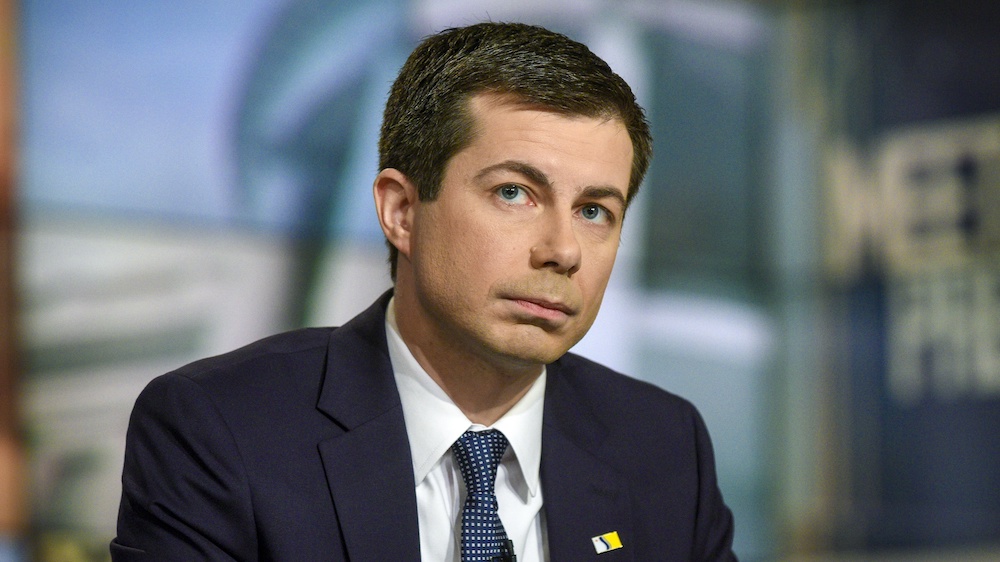If you’re interested in sharing your opinion on any cultural, political or personal topic, create an account here and check out our how-to post to learn more.
____
Pete Buttigieg has yet to demonstrate meaningful and genuine interest in connecting with Black voters or women of color.
The Atlanta debate could have been a powerful moment for his surging campaign. Imagine that instead of glibly suggesting that his late father, a former Notre Dame professor from Malta, was brown-skinned, Buttigieg took a moment to acknowledge his own shortcomings on racial justice. Imagine if he reflected on his own experience and struggles as a white, gay man in America to lift up the work of Black organizers and leaders in the LGBTQ community. Imagine if he took a moment to acknowledge the International Transgender Day of Remembrance in a year when 21 Black trans people have been murdered.
Instead, he was largely silent on issues concerning race.
We know from 2016 that polls and fundraising alone are not reliable indicators of success for a presidential election. The Democratic nominee will need the full base — Black voters and women of color most of all — wholly inspired, motivated and organized. To win the nomination, a Democratic candidate must run the gauntlet of early states including South Carolina, comprised of 60% Black voters, and other states with pivotal numbers of Black voters including Nevada, California and Texas. According to a recent Quinnipiac University poll, Buttigieg is polling at less than 1% with Black voters in South Carolina.
Black women and men along with women of color want similar things. We want someone who can beat Trump, and we demand a leader who will upend the system that allowed him to be President in the first place. Moderate and liberal platforms that avoid and evade a focus on racial justice are no longer acceptable. Indeed, for Black voters and women of color, they were never enough.
These platforms are the hallmark of both Biden and Buttigieg. Both candidates have deflected questions on race and the bold progressive policies that could begin to right systemic wrongs, and until they change their tunes, any talk of electability is simply out-of touch. They need a diverse coalition to win, and connections to money will not change that.
Buttigieg in particular is touted as a leader ready to bring generational change. The promise of his candidacy is much more uncertain when reviewing his record as mayor of South Bend. Buttigieg’s dismal handling of the South Bend shooting of Eric Logan highlights why Black voters are wary of his efforts to dismantle racist systems. During June’s debates, Buttigieg admitted that he failed to recruit a diverse police force. While that admission of failure is a step in the right direction, it is not enough to inspire trust.
More recently, Buttigieg was caught using a stock photo of a Kenyan woman to promote the Douglass Plan, his policy agenda for Black America, and then falsely claimed support from some prominent Black leaders in South Carolina, including the Democratic Party Black Caucus Chair who criticized the campaign for putting him on a list of endorsers without his permission.
Buttigieg’s fundraising boom, while impressive, should not be equated with his actual chances against Trump. Political strategists, donors, parties and pundits need to understand that racial justice leadership is a fundamental standard for electability in this election.
Savvy candidates already understand this and speak to it. Elizabeth Warren’s student loan forgiveness program includes HBCUs and Tribal Colleges and Universities (TCUs). Julian Castro has a police accountability plan and addresses human rights abuses at the border. And Bernie Sanders wants to further desegregate schools. Buttigieg’s plan to abolish private prisons and establish widespread voting rights are a good start, but he opposes extending the franchise to incarcerated people. He still has no coherent narrative to appeal to the diverse base Democrats needed to win the White House, especially in a swing state like Florida, where a multiracial coalition organized to do just that in the passage of Amendment 4.
How does a candidate that has failed to connect to the strongest core of the Democratic base make a case that he is electable? With the largest and most diverse field of Democratic presidential contenders in history, progressives must look beyond the smoke and mirrors of polling and fundraising numbers.
The reality on the ground, from women and people of color, is that the candidate who demonstrates real commitment to resolving racial, gender and economic injustice is the one who will motivate people to show up on Election Day. And those who are deeply investing in the Buttigieg candidacy need to understand that a campaign can only win by speaking to and for Black women and men along with other voters of color. Buttigieg and other contenders in the field need to learn the same lesson: if you do not win over Black and brown communities, you will not win the White House.
And right now, Buttigieg is not listening.
____
Aimee Allison is founder and president of She the People.
